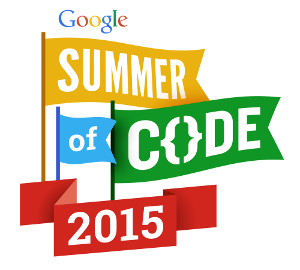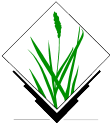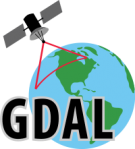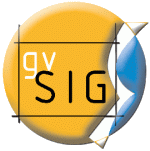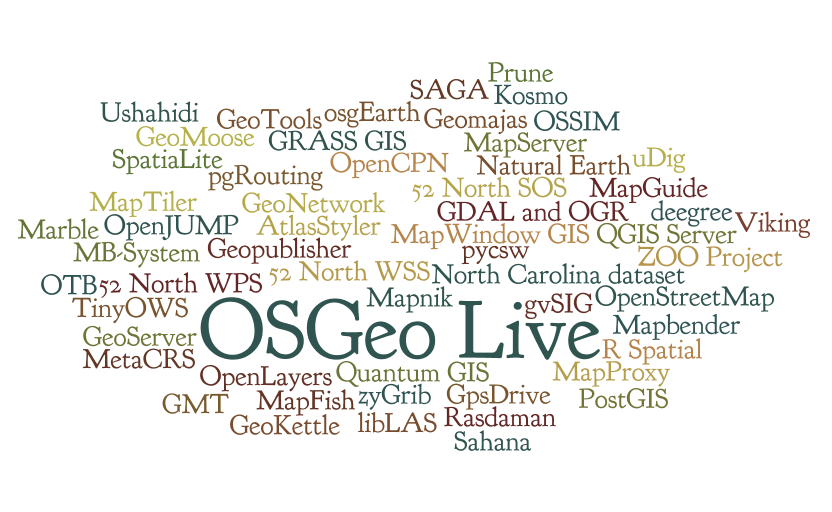Difference between revisions of "Google Summer of Code 2015 Ideas"
| (67 intermediate revisions by 8 users not shown) | |||
| Line 1: | Line 1: | ||
| − | [[Image:GoogleSummer_2015logo. | + | <center> |
| + | [[Image:GoogleSummer_2015logo.jpg|200px|link=http://code.google.com/soc/]] <font size="+3"> @ </font> [[Image:OSGeo_300_127_pixel.png|200px|link=http://www.osgeo.org]] | ||
| + | </center> | ||
----- | ----- | ||
* Back to the main OSGeo [[Google Summer of Code 2015]] wiki page. | * Back to the main OSGeo [[Google Summer of Code 2015]] wiki page. | ||
| − | * See also ideas from [[2007_SoC_Merged_Ideas|2007]], [[2008_SoC_Merged_Ideas|2008]], [[Google_Summer_of_Code_2009_Ideas|2009]], [[Google Summer of Code 2010 Ideas|2010]], [[Google Summer of Code 2011 Ideas|2011]], [[Google Summer of Code 2012 Ideas|2012]], | + | * See also ideas from [[2007_SoC_Merged_Ideas|2007]], [[2008_SoC_Merged_Ideas|2008]], [[Google_Summer_of_Code_2009_Ideas|2009]], [[Google Summer of Code 2010 Ideas|2010]], [[Google Summer of Code 2011 Ideas|2011]], [[Google Summer of Code 2012 Ideas|2012]], [[Google Summer of Code 2013 Ideas|2013]] and [[Google Summer of Code 2014 Ideas|2014]]. |
----- | ----- | ||
| Line 14: | Line 16: | ||
These ideas are '''*only*''' to motivate you, and serve as example of the kind of hills we want to charge up. Your own ideas are more than welcomed - they are encouraged. We view you as the next wave of open source leaders; show us what you've got. | These ideas are '''*only*''' to motivate you, and serve as example of the kind of hills we want to charge up. Your own ideas are more than welcomed - they are encouraged. We view you as the next wave of open source leaders; show us what you've got. | ||
| − | * '''Students: If you need more information on how to apply you can contact all the | + | * '''Students: check out the [[Google Summer of Code Recommendations for Students]] page. If you need more information on how to apply you can contact all the mentors via the OSGeo-SoC mailing list''' ([[#How to get in contact via mailing lists|see below]]) |
| − | * There is a [ | + | * There is a [https://developers.google.com/open-source/soc/resources/flyers Google SoC flyer] to look at and post in appropriate places. |
* Ok, [[OSGeo]] is involved in working with maps and things, but what kind of projects does it really do? Have a look at the [http://planet.osgeo.org/ live blog feed] to see what people are working on right now. | * Ok, [[OSGeo]] is involved in working with maps and things, but what kind of projects does it really do? Have a look at the [http://planet.osgeo.org/ live blog feed] to see what people are working on right now. | ||
* Mentors, there's an additional link providing some tips and specifying your responsibilities on the main OSGeo [[Google Summer of Code 2015]] wiki page. | * Mentors, there's an additional link providing some tips and specifying your responsibilities on the main OSGeo [[Google Summer of Code 2015]] wiki page. | ||
| − | |||
| − | |||
| − | |||
| − | |||
| − | |||
| − | |||
| − | |||
| − | |||
| − | |||
| − | |||
| − | |||
| − | |||
| − | |||
| − | |||
| − | |||
| − | |||
| − | |||
| − | |||
| − | |||
| − | |||
| − | |||
== The ideas pages == | == The ideas pages == | ||
| Line 60: | Line 41: | ||
[[Image:logo-qgis.png|60px|right]] | [[Image:logo-qgis.png|60px|right]] | ||
* [http://hub.qgis.org/wiki/quantum-gis/Google_Summer_of_Code_2015 '''QGIS''' SoC Ideas]: [http://www.qgis.org QGIS] is a user friendly Open Source Geographic Information System (GIS) that runs on Linux, Unix, Mac OSX, and Windows. QGIS supports vector, raster, and database formats. It is written in C++ and Python. | * [http://hub.qgis.org/wiki/quantum-gis/Google_Summer_of_Code_2015 '''QGIS''' SoC Ideas]: [http://www.qgis.org QGIS] is a user friendly Open Source Geographic Information System (GIS) that runs on Linux, Unix, Mac OSX, and Windows. QGIS supports vector, raster, and database formats. It is written in C++ and Python. | ||
| + | |||
[[Image:logo-gdal.png|60px|right]] | [[Image:logo-gdal.png|60px|right]] | ||
| − | |||
| − | |||
* [http://trac.osgeo.org/gdal/wiki/SummerOfCode '''GDAL''' Ideas]: [http://www.gdal.org GDAL] is a C++ library for reading and writing geospatial data raster and vector formats. | * [http://trac.osgeo.org/gdal/wiki/SummerOfCode '''GDAL''' Ideas]: [http://www.gdal.org GDAL] is a C++ library for reading and writing geospatial data raster and vector formats. | ||
| Line 70: | Line 50: | ||
[[Image:Logo-osgeo4w-mini.png|60px|right]] | [[Image:Logo-osgeo4w-mini.png|60px|right]] | ||
:* ''Idea'': We need to extend support to x64 based platforms to handle larger datasets and circumvent memory restrictions. This is a distribution and packaging project which will involve most/all of OSGeo member projects. (''ed. note: keep in mind that to fulfill GSoC requirements each project must have a majority coding component, so lots of scripting, testing, and Makefiles!'')--> | :* ''Idea'': We need to extend support to x64 based platforms to handle larger datasets and circumvent memory restrictions. This is a distribution and packaging project which will involve most/all of OSGeo member projects. (''ed. note: keep in mind that to fulfill GSoC requirements each project must have a majority coding component, so lots of scripting, testing, and Makefiles!'')--> | ||
| − | + | ||
[[Image:logo-gvSIG.png|60px|right]] | [[Image:logo-gvSIG.png|60px|right]] | ||
| − | * [[GvSIG_GSoC_2015_Ideas|'''gvSIG''' Ideas]]: gvSIG is a free GIS project for [http://www.gvsig. | + | * [[GvSIG_GSoC_2015_Ideas|'''gvSIG''' Ideas]]: gvSIG is a free GIS project for [http://www.gvsig.com/en/web/guest/products/gvsig-desktop Desktop]. The gvSIG project looks for students with Java or Python skills that want to develop new ideas on this software. |
| Line 78: | Line 58: | ||
* [http://opticks.org/confluence/display/opticksDev/Google+Summer+of+Code '''Opticks''' Ideas]: [http://opticks.org/ Opticks] is an extensible [http://en.wikipedia.org/wiki/Remote_sensing remote sensing] and imagery analysis desktop application. It provides a framework to process remote sensing data such as [http://en.wikipedia.org/wiki/Hyperspectral_imaging Hyperspectral] (HSI), [http://en.wikipedia.org/wiki/Multi-spectral_image Multispectral] (MSI), and [http://en.wikipedia.org/wiki/Synthetic_aperture_radar Synthetic aperture radar] (SAR) imagery and video. The application is written in C++ and licensed under LGPL v2.1. Extensions are written using C++ or Python. You can review the [http://opticks.org/confluence/display/opticksExt/All+Opticks+Extensions available extensions] and [http://opticks.org/confluence/display/opticks/Feature+Tour+-+Your+Data feature tour] to get a better idea of what Opticks can do. | * [http://opticks.org/confluence/display/opticksDev/Google+Summer+of+Code '''Opticks''' Ideas]: [http://opticks.org/ Opticks] is an extensible [http://en.wikipedia.org/wiki/Remote_sensing remote sensing] and imagery analysis desktop application. It provides a framework to process remote sensing data such as [http://en.wikipedia.org/wiki/Hyperspectral_imaging Hyperspectral] (HSI), [http://en.wikipedia.org/wiki/Multi-spectral_image Multispectral] (MSI), and [http://en.wikipedia.org/wiki/Synthetic_aperture_radar Synthetic aperture radar] (SAR) imagery and video. The application is written in C++ and licensed under LGPL v2.1. Extensions are written using C++ or Python. You can review the [http://opticks.org/confluence/display/opticksExt/All+Opticks+Extensions available extensions] and [http://opticks.org/confluence/display/opticks/Feature+Tour+-+Your+Data feature tour] to get a better idea of what Opticks can do. | ||
| − | + | <!-- | |
[[Image:Osgeolive_60px.png|right]] | [[Image:Osgeolive_60px.png|right]] | ||
| − | * [http://wiki.osgeo.org/wiki/Live_GIS_GSoC_2015 '''OSGeo-Live''' Ideas]: [http://live.osgeo.org OSGeo-Live] packages over 50 of the best geospatial open source projects, preconfigured with data, quickstarts and project overviews. We have packaging and automated build projects. ([[ | + | * [http://wiki.osgeo.org/wiki/Live_GIS_GSoC_2015 '''OSGeo-Live''' Ideas]: [http://live.osgeo.org OSGeo-Live] packages over 50 of the best geospatial open source projects, preconfigured with data, quickstarts and project overviews. We have packaging and automated build projects. --> |
| + | <!-- | ||
| + | [[Image:logo-postgis.png|60px|right]] | ||
| + | * [http://trac.osgeo.org/postgis/wiki/GoogleSummerCode '''PostGIS''' Ideas]: [http://postgis.net PostGIS] spatially enables the popular PostgreSQL object-relational database, allowing it to be used as a back-end database for geographic information systems (GIS) and web-mapping applications.--> | ||
| + | <!-- | ||
| + | [[Image:logo-ossim.png|90px|right]] | ||
| + | * [https://trac.osgeo.org/ossim/wiki/GSoC_2015 '''OSSIM''' SoC Ideas]: [http://trac.osgeo.org/ossim/wiki OSSIM] Open Source Software Image Map (OSSIM) is a high performance engine for remote sensing, image processing, geographical information systems and photogrammetry. The software has been under active development since 1996 and is deployed across a number of private, federal and civilian agencies. It is written in C++.--> | ||
| − | + | [[Image:Logo_OTB.png|60px|right]] | |
| − | [[Image: | + | * [http://wiki.orfeo-toolbox.org/index.php/Proposals_for_GSoC_2015 '''OTB''' SoC Ideas]: [http://www.orfeo-toolbox.org ORFEO ToolBox] (OTB) is an open source library for remote sensing image processing.Targeted algorithms for high resolution optical images (Pleiades, SPOT, QuickBird, WorldView, Landsat, Ikonos), hyperspectral sensors (Hyperion) or SAR (TerraSarX, ERS, Palsar) are available. The software has been under active development since 2006 and is written in C++ and it includes also side projects also open source with GUI like Monteverdi. OTB has recently started the incubation process into OSGeo. |
| − | * [http:// | ||
| − | [[Image: | + | [[Image:Mapserver.png|100px|right]] |
| − | * [ | + | * [http://wiki.osgeo.org/wiki/MapServer_2015_SOC_Ideas '''Mapserver''' SoC Ideas]: MapServer is a Web Mapping Engine; an Open Source platform for publishing spatial data and interactive mapping applications to the web. |
| − | [[Image: | + | [[Image:Logo-istSOS.png|60px|right]] |
| − | * [http://wiki | + | * [http://sourceforge.net/p/istsos/wiki/GSoC%20ideas%202015/ '''istSOS''' Ideas]: [http://sourceforge.net/projects/istsos/ istSOS] (Istituto Scienze della Terra Sensor Observation Service) is an implementation of the Sensor Observation Service (SOS) standard from the Open Geospatial Consortium (OGC). The development of istSOS was started in 2009 in order to provide a simple implementation of the SOS standard for the management, provision and integration of hydro-meteorological data collected in Canton Ticino (Switzerland). istSOS is entirely written in Python. |
<!-- | <!-- | ||
[[Image:logo-geos.png|60px|right]] | [[Image:logo-geos.png|60px|right]] | ||
* [http://trac.osgeo.org/geos/wiki/GSoC '''GEOS''' Ideas]: GEOS (Geometry Engine - Open Source) is a C++ port of the JTS Topology Suite (JTS). It includes the OpenGIS Simple Features for SQL spatial predicate functions and spatial operators, as well as specific JTS enhanced topology functions. | * [http://trac.osgeo.org/geos/wiki/GSoC '''GEOS''' Ideas]: GEOS (Geometry Engine - Open Source) is a C++ port of the JTS Topology Suite (JTS). It includes the OpenGIS Simple Features for SQL spatial predicate functions and spatial operators, as well as specific JTS enhanced topology functions. | ||
| − | --> | + | --> |
| + | |||
[[Image:logo-geoserver-crop.png|50px|right]] | [[Image:logo-geoserver-crop.png|50px|right]] | ||
| − | * [http://live.osgeo.org/en/overview/geoserver_overview.html ''' | + | * [https://github.com/geoserver/geoserver/wiki/GSOC-Ideas GSOC Ideas]: [http://live.osgeo.org/en/overview/geoserver_overview.html '''GeoServer'''] is a web server that allows you to serve maps and data from a variety of formats to standard clients such as web browsers and desktop GIS applications. GeoServer works with the Open Geospatial Consortium (OGC) standards Web Feature Service (WFS), Web Coverage Service (WCS), Web Processing Service (WPS) and Web Map Service (WMS) standards. |
| − | :* '' | + | :* The GeoServer team asks applicants to introduce themselves on the geoserver-devel list ( Communicating in public is a key success factor to open source development ) |
| − | -- | + | |
| + | |||
| + | [[Image:Geotools-logo.png|50px|right]] | ||
| + | * [http://docs.codehaus.org/display/GEOTOOLS/Google+Summer+of+Code ''GSOC'']: [http://live.osgeo.org/en/overview/geotools_overview.html '''GeoTools'''] GeoTools is an open source Java library for working with geospatial data, including both data access, data structures, processing and a powerful rendering engine. GeoTools is a modular library used in a wide range of web service, command line tools and desktop applications. | ||
| + | |||
| + | |||
| + | |||
| + | [[Image:ZOO-Project-mini.png|right]] | ||
| + | * [http://zoo-project.org/trac/wiki/ZOO_SoC_Idea_2015 '''ZOO-Project''' Soc Ideas]: ZOO-Project is a WPS (Web Processing Service) open source project released under MIT/X-11 style license. It provides an OGC WPS compliant developer-friendly framework to create and chain WPS Web services. | ||
| + | |||
| + | |||
| + | <!-- | ||
[[Image:ZOO-Project-mini.png|right]] | [[Image:ZOO-Project-mini.png|right]] | ||
* [http://www.zoo-project.org/trac/wiki/ZOO_SoC_Ideas '''ZOO-Project''' Ideas]: [http://www.zoo-project.org ZOO-Project] is a WPS open source project released under a MIT/X-11 style license. We are seeking a developper to handle migration from SpiderMonky to Google v8 JavaScript runtime environment, upgrade the ZOO-API, build a demo package and develop new services dedicated to raster gesture. | * [http://www.zoo-project.org/trac/wiki/ZOO_SoC_Ideas '''ZOO-Project''' Ideas]: [http://www.zoo-project.org ZOO-Project] is a WPS open source project released under a MIT/X-11 style license. We are seeking a developper to handle migration from SpiderMonky to Google v8 JavaScript runtime environment, upgrade the ZOO-API, build a demo package and develop new services dedicated to raster gesture. | ||
--> | --> | ||
| − | |||
<!-- | <!-- | ||
We expect ideas also from [http://live.osgeo.org/en/overview/mapbender_overview.html MapBender], [http://live.osgeo.org/en/overview/geomoose_overview.html GeoMOOSE], [http://mapserver.org/ MapServer], ... | We expect ideas also from [http://live.osgeo.org/en/overview/mapbender_overview.html MapBender], [http://live.osgeo.org/en/overview/geomoose_overview.html GeoMOOSE], [http://mapserver.org/ MapServer], ... | ||
--> | --> | ||
| + | |||
| + | [[Image:Osgeo-live.png|230px|right]] | ||
| + | * [http://wiki.osgeo.org/wiki/Live_GIS_GSoC_2015 '''Osgeo-Live''' SoC Ideas]: [http://live.osgeo.org/en/index.html OSGeo-Live] is a self-contained bootable DVD, USB thumb drive or Virtual Machine based on Lubuntu, that allows you to try a wide variety of open source geospatial software without installing anything. It is composed entirely of free software, allowing it to be freely distributed, duplicated and passed around. It provides pre-configured applications for a range of geospatial use cases, including storage, publishing, viewing, analysis and manipulation of data. It also contains sample datasets and documentation. | ||
=== Guest projects === | === Guest projects === | ||
| − | Like-minded geospatial projects to take part under OSGeo umbrella. If you wish your software project to be listed here, please contact | + | Like-minded geospatial projects to take part under OSGeo umbrella. If you wish your software project to be listed here, please contact [[User:Madi|Madi]] or Anne. |
| − | |||
| − | |||
| − | |||
| − | |||
| − | |||
[[Image:Pgrouting-logo.png|60px|right]] | [[Image:Pgrouting-logo.png|60px|right]] | ||
| − | + | * [https://github.com/pgRouting/pgrouting/wiki/GSoC-Ideas '''pgRouting''' Ideas]: [http://pgrouting.org pgRouting] extends the PostGIS / PostgreSQL geospatial database to provide geospatial routing functionality and more. | |
| − | |||
| − | * [https://github.com/ | ||
[[Image:Pywps-logo.png|60px|right]] | [[Image:Pywps-logo.png|60px|right]] | ||
| − | |||
* [https://github.com/jachym/pywps-4/wiki/GSOC-2015-ideas '''PyWPS''' Ideas]: [http://pywps.wald.intevation.org PyWPS] is server implementation of OGC WPS standard on server side using Python programming language. Currently, [http://github.com/jachym/pywps-4/ new version of PyWPS] is being done, were we would like to implement several new attractive features. | * [https://github.com/jachym/pywps-4/wiki/GSOC-2015-ideas '''PyWPS''' Ideas]: [http://pywps.wald.intevation.org PyWPS] is server implementation of OGC WPS standard on server side using Python programming language. Currently, [http://github.com/jachym/pywps-4/ new version of PyWPS] is being done, were we would like to implement several new attractive features. | ||
| − | * [https:// | + | [[Image:logo-uDig.png|60px|right]] |
| + | * [https://github.com/moovida/jgrasstools/wiki/Google-Summer-of-Code-Ideas-2015 '''JGrasstools''' and '''uDig''' Spatial Toolbox SoC Ideas]: The JGrasstools project is a geospatial modules library dedicated to hydrology and geomorphology. It is the base of the modules for uDig's Spatial Toolbox. | ||
| − | [[Image:logo | + | [[Image:otp-logo.png|80px|right]] |
| − | * [ | + | * [http://github.com/opentripplanner/OpenTripPlanner/wiki/2015-Google-Summer-of-Code-Ideas '''OpenTripPlanner''' Ideas]: [http://github.com/opentripplanner/OpenTripPlanner OpenTripPlanner] is an open source multi-modal trip planner. It depends on open data in open standard file formats (GTFS and OpenStreetMap), includes a REST API for journey planning, a map-based Javascript client, and an [http://github.com/CUTR-at-USF/OpenTripPlanner-for-Android/wiki Android App]. |
| + | |||
<!-- please contact us first | <!-- please contact us first | ||
* [http://lsi.iiit.ac.in/redmine/projects/lsiviewer/wiki/GSoC_2015 '''LSIViewer''' Ideas]: [http://lsi.iiit.ac.in/redmine/projects/lsiviewer/wiki/Main/ LSIViewer] Libre Spatial Information Viewer (LSIViewer) is a web based geospatial data viewer which allows you to view your data, style it, export to SVG/PNG/JPEG formats and can be for used in reports and presentation. It uses Wt, a C++ web toolkit which comes with its own http server and has good support for embedded platforms. The initial version had support for only shapefiles but around 13 vector formats, OSM layer, 3D view has been experimental on the lab's internal repository. | * [http://lsi.iiit.ac.in/redmine/projects/lsiviewer/wiki/GSoC_2015 '''LSIViewer''' Ideas]: [http://lsi.iiit.ac.in/redmine/projects/lsiviewer/wiki/Main/ LSIViewer] Libre Spatial Information Viewer (LSIViewer) is a web based geospatial data viewer which allows you to view your data, style it, export to SVG/PNG/JPEG formats and can be for used in reports and presentation. It uses Wt, a C++ web toolkit which comes with its own http server and has good support for embedded platforms. The initial version had support for only shapefiles but around 13 vector formats, OSM layer, 3D view has been experimental on the lab's internal repository. | ||
--> | --> | ||
| − | + | <!-- | |
[[Image:Logo-cartaro.png|60px|right]] | [[Image:Logo-cartaro.png|60px|right]] | ||
| − | * [https://groups.drupal.org/node/407408 '''Cartaro''' Ideas]: [http://cartaro.org Cartaro] provides geospatial functionality and web services within the Drupal Content Management System (CMS). It is builds upon robust Open Source components: the PostGIS database, GeoServer and GeoWebCache web services, OpenLayers maps in the browser, all managed from within the powerful Drupal CMS. | + | * [https://groups.drupal.org/node/407408 '''Cartaro''' Ideas]: [http://cartaro.org Cartaro] provides geospatial functionality and web services within the Drupal Content Management System (CMS). It is builds upon robust Open Source components: the PostGIS database, GeoServer and GeoWebCache web services, OpenLayers maps in the browser, all managed from within the powerful Drupal CMS.--> |
| − | + | <!-- | |
| − | |||
[[Image:Geonode logo.png|60px|right]] | [[Image:Geonode logo.png|60px|right]] | ||
| − | * [https://github.com/GeoNode/geonode/wiki/Google-Summer-of-Code-Ideas-2015 '''GeoNode''' Ideas]: [http://geonode.org/ GeoNode] is an Open Source Geospatial Content Management System: a web-based application and platform for developing Geospatial Information Systems (GIS) and for deploying spatial data infrastructures (SDI). It is designed to be easily extended and modified, and can be integrated into existing platforms. Written with the Python Django web application, it is based on other great Open Source components such as PostGIS, GeoServer, OpenLayers and GeoExplorer. | + | * [https://github.com/GeoNode/geonode/wiki/Google-Summer-of-Code-Ideas-2015 '''GeoNode''' Ideas]: [http://geonode.org/ GeoNode] is an Open Source Geospatial Content Management System: a web-based application and platform for developing Geospatial Information Systems (GIS) and for deploying spatial data infrastructures (SDI). It is designed to be easily extended and modified, and can be integrated into existing platforms. Written with the Python Django web application, it is based on other great Open Source components such as PostGIS, GeoServer, OpenLayers and GeoExplorer.--> |
| − | + | <!-- | |
| − | |||
[[Image:neo4j-spatial_64.png|right]] | [[Image:neo4j-spatial_64.png|right]] | ||
| − | * [https://github.com/neo4j/GSoC/wiki '''Neo4j Spatial''' Ideas]: [https://github.com/neo4j/spatial Neo4j Spatial] is an Open Source library extending the popular [http://neo4j.org Neo4j Graph Database] with a number of features for GIS enabling your data model. It embeds and relies on JTS and GeoTools, and provides the ability to store your domain model in many internal formats, and has utilities for import and export of Shapefiles and OpenStreetMap data. We've received contributions from GSoC projects in 2010, 2011 and 2012. | + | * [https://github.com/neo4j/GSoC/wiki '''Neo4j Spatial''' Ideas]: [https://github.com/neo4j/spatial Neo4j Spatial] is an Open Source library extending the popular [http://neo4j.org Neo4j Graph Database] with a number of features for GIS enabling your data model. It embeds and relies on JTS and GeoTools, and provides the ability to store your domain model in many internal formats, and has utilities for import and export of Shapefiles and OpenStreetMap data. We've received contributions from GSoC projects in 2010, 2011 and 2012.--> |
| − | + | <!-- | |
| − | |||
[[Image:Logo-cartoDB.png|70px|right]] | [[Image:Logo-cartoDB.png|70px|right]] | ||
| − | * [https://github.com/CartoDB/cartodb/wiki/GoogleSummerCode '''CartoDB Ideas''']: [http://cartodb.com/develop CartoDB] is a cloud based mapping, analysis and visualization engine that lets users build spatial applications for both mobile and the web. Students will need to be able to use PHP and PostgreSQL. | + | * [https://github.com/CartoDB/cartodb/wiki/GoogleSummerCode '''CartoDB Ideas''']: [http://cartodb.com/develop CartoDB] is a cloud based mapping, analysis and visualization engine that lets users build spatial applications for both mobile and the web. Students will need to be able to use PHP and PostgreSQL.--> |
| − | |||
<!-- | <!-- | ||
* '''FIXME''': move to a member project's idea page: | * '''FIXME''': move to a member project's idea page: | ||
: ''[http://sites.google.com/site/foss4gku/projects/gsoc-feature-based-map-algebra '''Feature-based Map Algebra''' SoC Ideas] Map algebra (or cartographic modeling) operations provide powerful tools for analyzing and manipulating geographic data in the raster data model both in commercial and open source GIS software. This project extends these operations to the vector data model and makes them available in PostGIS and QGIS. It will be implemented primarily using the Python programming language.'' | : ''[http://sites.google.com/site/foss4gku/projects/gsoc-feature-based-map-algebra '''Feature-based Map Algebra''' SoC Ideas] Map algebra (or cartographic modeling) operations provide powerful tools for analyzing and manipulating geographic data in the raster data model both in commercial and open source GIS software. This project extends these operations to the vector data model and makes them available in PostGIS and QGIS. It will be implemented primarily using the Python programming language.'' | ||
--> | --> | ||
| − | |||
<!-- | <!-- | ||
[[Image:Logo-mapnik.png|100px|right]] | [[Image:Logo-mapnik.png|100px|right]] | ||
| Line 167: | Line 155: | ||
--> | --> | ||
| − | == | + | === See also === |
| − | + | Other like minded projects do not participate to GSoC under OSGeo umbrella, but with their own organization. You may want to visit also their page: | |
| − | : | ||
| − | |||
| − | + | * [https://wiki.52north.org/bin/view/Projects/GSoC2015ProjectIdeas '''52°North''' Ideas] | |
| − | + | <!-- [[Image:Logo-osm6.png|60px|right]] --> | |
| + | * [http://wiki.openstreetmap.org/wiki/Google_Summer_of_Code/2015/Project_Ideas '''OpenStreetMap''' Ideas] | ||
| − | + | <!-- | |
| − | : | + | [http://osm.org/ OSM] is a project aimed squarely at creating and providing free geographic data such as street maps to anyone who wants them. The project was started because most maps you think of as free actually have legal or technical restrictions on their use, holding back people from using them in creative, productive or unexpected ways. |
| + | --> | ||
| − | + | === Don't see in the list the project you're interested in? === | |
| − | |||
| − | + | Contact them in their developers mailing list! Feel free to propose your own idea and get feedback! | |
| + | == I want to apply as a student == | ||
| − | + | Before applying as a student, check out the [[Google Summer of Code Recommendations for Students]] page. | |
| − | |||
| − | + | === Which project do I choose? === | |
| − | + | Most of the software projects are available pre-built on our Live demo { DVD | USB stick | VirtualMachine } with project overviews and short tutorials where you can try everything out. | |
| + | : View the documents and download the ISO from http://live.osgeo.org | ||
| + | [[File:Osgeolive wordle.png|400px|center]] | ||
| − | |||
| − | + | === Important dates === | |
| − | * | + | * [http://www.google-melange.com/gsoc/events/google/gsoc2015 '''The official timeline'''] |
| − | |||
| − | |||
| − | |||
| − | |||
| − | |||
| − | |||
| − | |||
| − | |||
| − | |||
| − | |||
| − | |||
| − | |||
| − | |||
| − | |||
| − | |||
| − | |||
| − | |||
| − | + | <!-- {{done}} --> | |
| − | + | * March 2nd: Google announces accepted organizations. | |
| − | * | + | : Please start talking to the dev communities you are interested in ''now''. |
| − | + | * March 16: Student applications open. | |
| − | + | : The earlier you start the more probable it is that you will be accepted! | |
| − | + | : ''There is two way feedback during the application process which really helps you improve and clarify your application before the final deadline. The better your involvement with your potential mentors during this period, the better your chances of being selected.'' | |
| − | + | * March 27: Student application deadline. | |
| − | + | * April 27: '''Accepted student proposals are announced and Community Bonding Period begins.''' | |
| − | + | * May 25: '''Coding begins!''' | |
| − | + | : (''you may unofficially start a week or two earlier if you know you'll have to take a week or two off during The Summer or you'll be sitting finals in the first week(s) of the program. This must be reflected in your application timeline'') | |
| − | + | * June 26: Mid-term evaluation begins | |
| − | + | * August 17-21: '''Pencils down!''' | |
| − | + | * August 28: Final evaluations | |
| − | + | * August 28: Students begin submitting required code samples to Google | |
| − | + | * August 31: Final results announced | |
| − | |||
| − | |||
| − | |||
| − | |||
| − | |||
| − | |||
| − | |||
| − | |||
| − | |||
| − | |||
| − | |||
| − | |||
| − | |||
| − | |||
| − | |||
| − | |||
| − | |||
| − | |||
| − | |||
| − | |||
| − | |||
| − | |||
| − | |||
| − | |||
| − | |||
| − | |||
| − | |||
| − | |||
| − | |||
| − | |||
| − | |||
| − | |||
| − | |||
| − | |||
| − | |||
| − | |||
| − | |||
| − | |||
| − | |||
| − | |||
| − | |||
| − | |||
| − | |||
| − | |||
| − | |||
| − | |||
| − | |||
| − | |||
| − | |||
| − | |||
| − | |||
| − | |||
| − | |||
| − | |||
| − | |||
| − | |||
| − | |||
| − | |||
| − | |||
| − | |||
| − | |||
| − | |||
| − | |||
| − | |||
| − | |||
| − | |||
| − | |||
| − | |||
| − | |||
| − | |||
| − | |||
| − | |||
| − | |||
| − | |||
| − | |||
| − | |||
| − | |||
| − | * | ||
| − | * | ||
| − | * | ||
| − | |||
| − | |||
| − | |||
| − | |||
| − | |||
| − | |||
| − | |||
| − | |||
| − | |||
| − | |||
| − | |||
| − | |||
[Back to [[Google Summer of Code 2015]] @ OSGeo] | [Back to [[Google Summer of Code 2015]] @ OSGeo] | ||
[[Category: Google Summer of Code]] | [[Category: Google Summer of Code]] | ||
Latest revision as of 07:54, 17 November 2015
- Back to the main OSGeo Google Summer of Code 2015 wiki page.
OSGeo Google Summer of Code 2015
The Open Source Geospatial Foundation would like to extend a welcome to all SoC students. On this page you will find links to a host of ideas organized by project. You will find ideas ranging from the depths of computer science graph theory to the heights of visualization. One thing all these ideas have in common is lots and lots of spatial data.
These ideas are *only* to motivate you, and serve as example of the kind of hills we want to charge up. Your own ideas are more than welcomed - they are encouraged. We view you as the next wave of open source leaders; show us what you've got.
- Students: check out the Google Summer of Code Recommendations for Students page. If you need more information on how to apply you can contact all the mentors via the OSGeo-SoC mailing list (see below)
- There is a Google SoC flyer to look at and post in appropriate places.
- Ok, OSGeo is involved in working with maps and things, but what kind of projects does it really do? Have a look at the live blog feed to see what people are working on right now.
- Mentors, there's an additional link providing some tips and specifying your responsibilities on the main OSGeo Google Summer of Code 2015 wiki page.
The ideas pages
[Check back often, it's a work in progress]
Each participating project's list of ideas is on the respective projects' wikis, with a short description of the project and what type of students would be interested in it:
OSGeo Foundation member projects
- More coming soon: Get started talking to your favorite project's development team today!
- GRASS GIS SoC Ideas: GRASS GIS is an open source GIS focusing on analysis, modeling and visualization. It is a collection of modules written in C and Python and has a GUI written in wxPython. If you know Python, or want to implement algorithms in C, take a look!
- QGIS SoC Ideas: QGIS is a user friendly Open Source Geographic Information System (GIS) that runs on Linux, Unix, Mac OSX, and Windows. QGIS supports vector, raster, and database formats. It is written in C++ and Python.
- GDAL Ideas: GDAL is a C++ library for reading and writing geospatial data raster and vector formats.
- gvSIG Ideas: gvSIG is a free GIS project for Desktop. The gvSIG project looks for students with Java or Python skills that want to develop new ideas on this software.
- Opticks Ideas: Opticks is an extensible remote sensing and imagery analysis desktop application. It provides a framework to process remote sensing data such as Hyperspectral (HSI), Multispectral (MSI), and Synthetic aperture radar (SAR) imagery and video. The application is written in C++ and licensed under LGPL v2.1. Extensions are written using C++ or Python. You can review the available extensions and feature tour to get a better idea of what Opticks can do.
- OTB SoC Ideas: ORFEO ToolBox (OTB) is an open source library for remote sensing image processing.Targeted algorithms for high resolution optical images (Pleiades, SPOT, QuickBird, WorldView, Landsat, Ikonos), hyperspectral sensors (Hyperion) or SAR (TerraSarX, ERS, Palsar) are available. The software has been under active development since 2006 and is written in C++ and it includes also side projects also open source with GUI like Monteverdi. OTB has recently started the incubation process into OSGeo.
- Mapserver SoC Ideas: MapServer is a Web Mapping Engine; an Open Source platform for publishing spatial data and interactive mapping applications to the web.
- istSOS Ideas: istSOS (Istituto Scienze della Terra Sensor Observation Service) is an implementation of the Sensor Observation Service (SOS) standard from the Open Geospatial Consortium (OGC). The development of istSOS was started in 2009 in order to provide a simple implementation of the SOS standard for the management, provision and integration of hydro-meteorological data collected in Canton Ticino (Switzerland). istSOS is entirely written in Python.
- GSOC Ideas: GeoServer is a web server that allows you to serve maps and data from a variety of formats to standard clients such as web browsers and desktop GIS applications. GeoServer works with the Open Geospatial Consortium (OGC) standards Web Feature Service (WFS), Web Coverage Service (WCS), Web Processing Service (WPS) and Web Map Service (WMS) standards.
- The GeoServer team asks applicants to introduce themselves on the geoserver-devel list ( Communicating in public is a key success factor to open source development )
- GSOC: GeoTools GeoTools is an open source Java library for working with geospatial data, including both data access, data structures, processing and a powerful rendering engine. GeoTools is a modular library used in a wide range of web service, command line tools and desktop applications.
- ZOO-Project Soc Ideas: ZOO-Project is a WPS (Web Processing Service) open source project released under MIT/X-11 style license. It provides an OGC WPS compliant developer-friendly framework to create and chain WPS Web services.
- Osgeo-Live SoC Ideas: OSGeo-Live is a self-contained bootable DVD, USB thumb drive or Virtual Machine based on Lubuntu, that allows you to try a wide variety of open source geospatial software without installing anything. It is composed entirely of free software, allowing it to be freely distributed, duplicated and passed around. It provides pre-configured applications for a range of geospatial use cases, including storage, publishing, viewing, analysis and manipulation of data. It also contains sample datasets and documentation.
Guest projects
Like-minded geospatial projects to take part under OSGeo umbrella. If you wish your software project to be listed here, please contact Madi or Anne.
- pgRouting Ideas: pgRouting extends the PostGIS / PostgreSQL geospatial database to provide geospatial routing functionality and more.
- PyWPS Ideas: PyWPS is server implementation of OGC WPS standard on server side using Python programming language. Currently, new version of PyWPS is being done, were we would like to implement several new attractive features.
- JGrasstools and uDig Spatial Toolbox SoC Ideas: The JGrasstools project is a geospatial modules library dedicated to hydrology and geomorphology. It is the base of the modules for uDig's Spatial Toolbox.
- OpenTripPlanner Ideas: OpenTripPlanner is an open source multi-modal trip planner. It depends on open data in open standard file formats (GTFS and OpenStreetMap), includes a REST API for journey planning, a map-based Javascript client, and an Android App.
See also
Other like minded projects do not participate to GSoC under OSGeo umbrella, but with their own organization. You may want to visit also their page:
Don't see in the list the project you're interested in?
Contact them in their developers mailing list! Feel free to propose your own idea and get feedback!
I want to apply as a student
Before applying as a student, check out the Google Summer of Code Recommendations for Students page.
Which project do I choose?
Most of the software projects are available pre-built on our Live demo { DVD | USB stick | VirtualMachine } with project overviews and short tutorials where you can try everything out.
- View the documents and download the ISO from http://live.osgeo.org
Important dates
- March 2nd: Google announces accepted organizations.
- Please start talking to the dev communities you are interested in now.
- March 16: Student applications open.
- The earlier you start the more probable it is that you will be accepted!
- There is two way feedback during the application process which really helps you improve and clarify your application before the final deadline. The better your involvement with your potential mentors during this period, the better your chances of being selected.
- March 27: Student application deadline.
- April 27: Accepted student proposals are announced and Community Bonding Period begins.
- May 25: Coding begins!
- (you may unofficially start a week or two earlier if you know you'll have to take a week or two off during The Summer or you'll be sitting finals in the first week(s) of the program. This must be reflected in your application timeline)
- June 26: Mid-term evaluation begins
- August 17-21: Pencils down!
- August 28: Final evaluations
- August 28: Students begin submitting required code samples to Google
- August 31: Final results announced
[Back to Google Summer of Code 2015 @ OSGeo]
